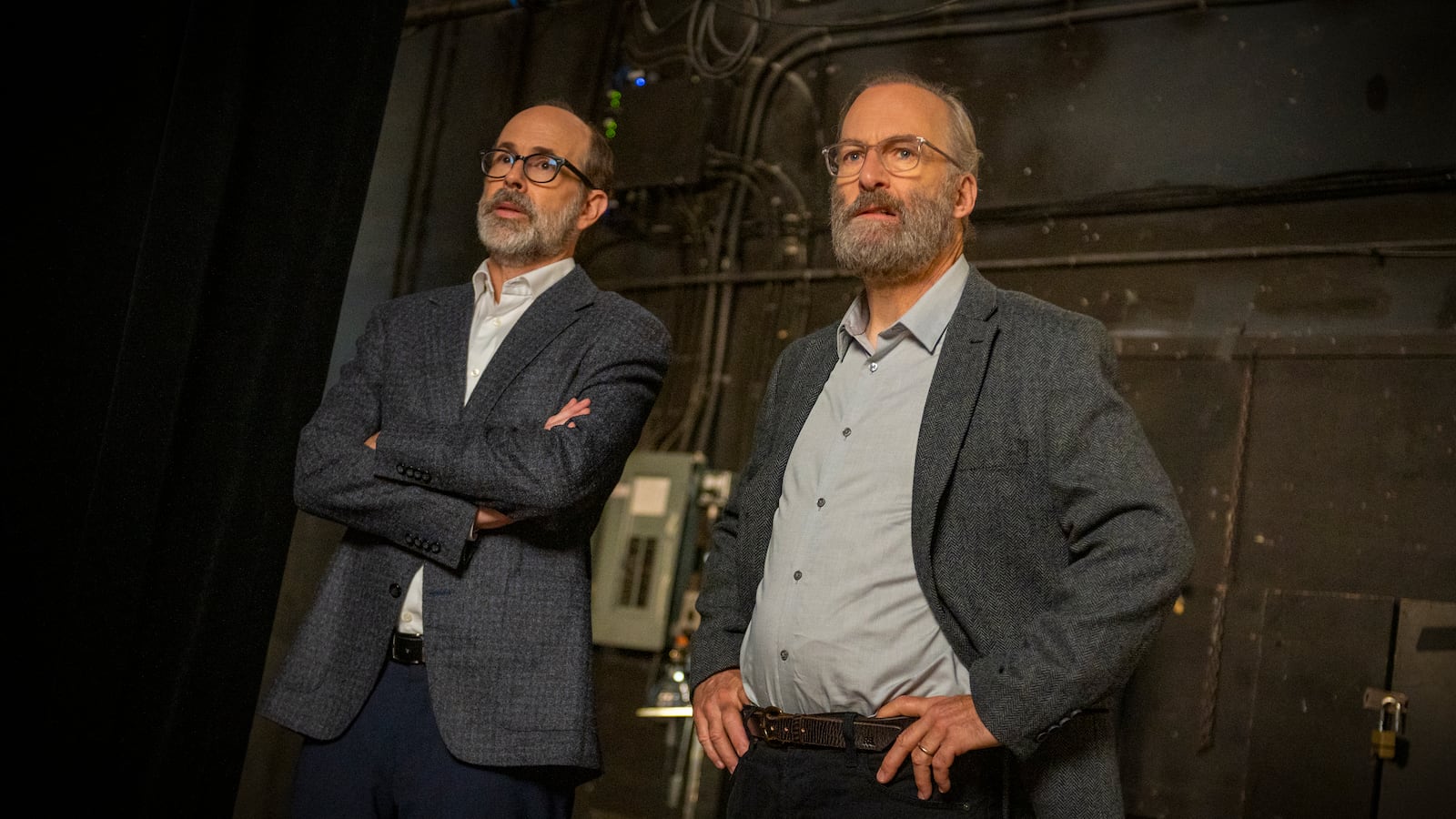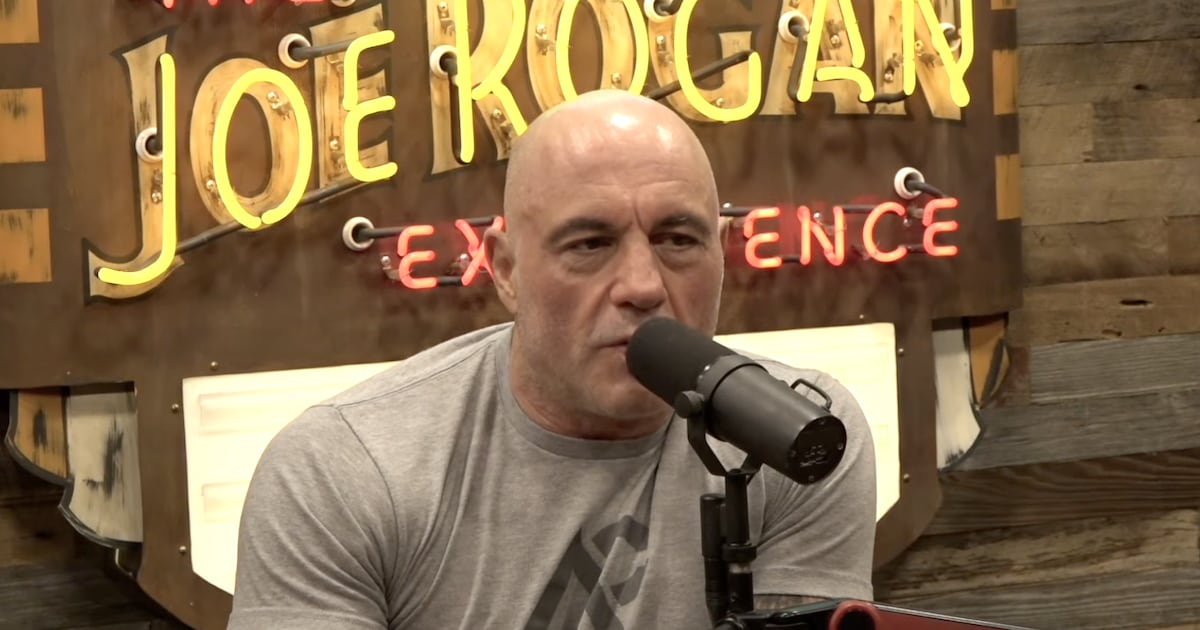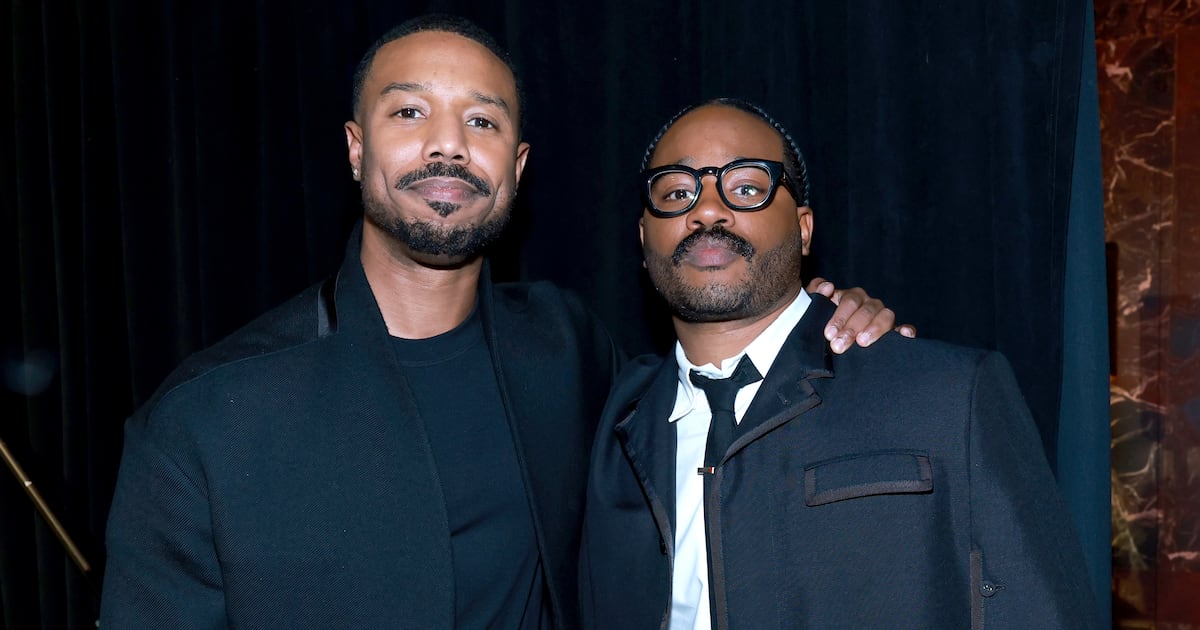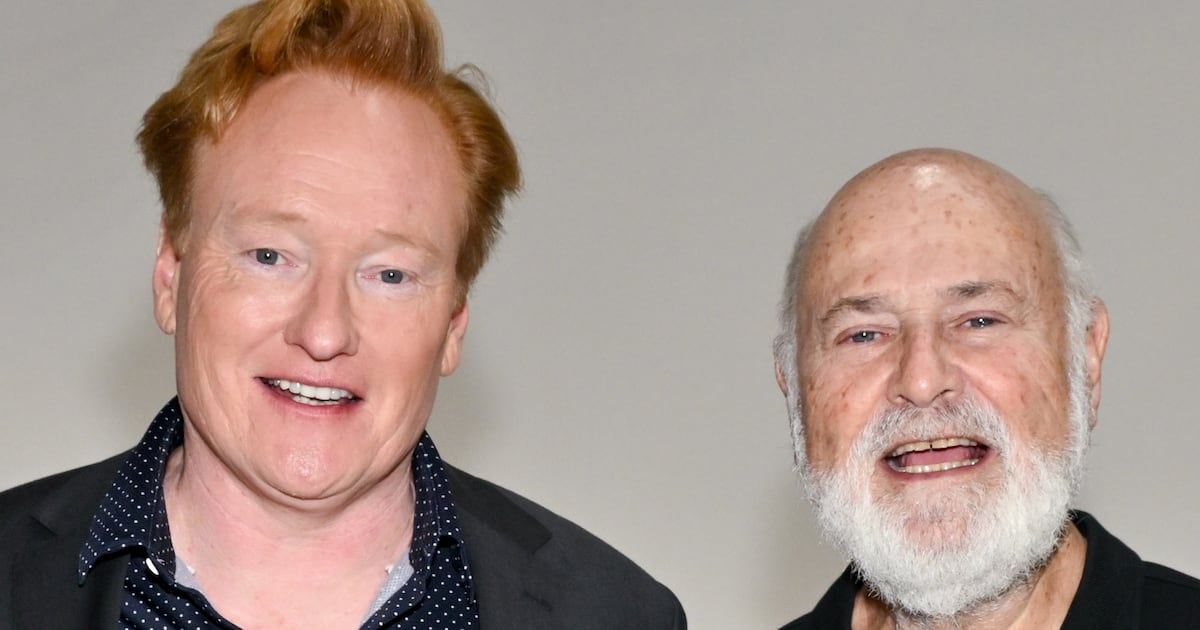Lucky Hank seems like it’ll be a much slower burn than star Bob Odenkirk’s previous AMC show. But considering it’s the kind of dark comedy where an entire episode centers around our antihero’s rivalry with a real-life literary titan, this is a slow burn I am very much here for.
Episode two of Lucky Hank’s first season is called “George Saunders”—as in, acclaimed short story writer George Saunders. Author of Tenth of December, Lincoln in the Bardo, and the recent Liberation Day George Saunders. George Saunders, whom the New York Times dubbed in 2013 as “the writer for our time.”
To me, a book nerd, naming an episode after Saunders is already intriguing. But that the episode is actually about a visit from Hank’s one-time friend George Saunders (played by comedian Brian Huskey) is the kind of hyper specificity that makes for some artful, engrossing, bibliophile-focused comedy. It also establishes Lucky Hank’s interest in authenticity. Not only is this a show about an English professor, after all, but it’s adapted from a novel by one of Saunders’ contemporaries, Richard Russo. (Russo, like Saunders, is himself a professor.)
But if the premise of “George Saunders” doesn’t make you laugh, maybe Lucky Hank is not your show. Hank (Odenkirk) is currently embroiled in scandal within his small liberal arts college, where he serves as English department chair. But his colleagues in the department want to displace him, after he openly insulted both his students and the institution during a writing workshop gone wrong.
Hank doesn’t really give two shits about what happens to his job, because he already feels like a failure. He fancies himself a novelist, but that second book he’s been working on for years is still just one blank page. The self-loathing Hank feels for being stuck in a job that both bores and is beneath him, yet not becoming accomplished enough to escape it, comes to a head in this episode—once his one-time peer shows up for a talk.
Saunders and Hank were good friends decades ago, when they were both up-and-coming writers of perceptive, pointed, respected satire. But Saunders became Saunders, and Hank became Hank. Spending time with Saunders again after all these years just reminds Hank of his own stagnation.
Saunders’ visit to the school sends Hank spiraling into quiet, then loud, despair. The episode follows Hank and Saunders, as one dissatisfied professor tries to hide how miserable he is that his one-time professional equal has usurped him. It doesn’t help that Hank has to chaperone Saunders around and puff him up to everyone, and he’s so freaking nice about it. And worse, Hank’s loathsome coworkers are trying to suck up to a real-live author, even though Saunders is almost impossibly mild-mannered and disinterested in the flattery.
Much like Saunders’ high-concept stories, Lucky Hank blends the real with the fictional to unpack the peculiarities of human behavior. Most deftly, this episode uses Hank and Saunders’ relationship to nail the frustration felt by anyone who fancies themselves a fiction writer. (It’s certainly why I gave up on the idea of ever writing a novel, along with many of my other creative dreams.) Instead of conjuring some fictional counterpart for Hank, himself a fictional author, the episode plucks a recognizable and well-defined figure to position him against. Of course Hank is going to have a panic attack when he has to ask Saunders about how dang successful he’s become! That could have been Hank up there, giving advice to young writers based on his own illustrious career.
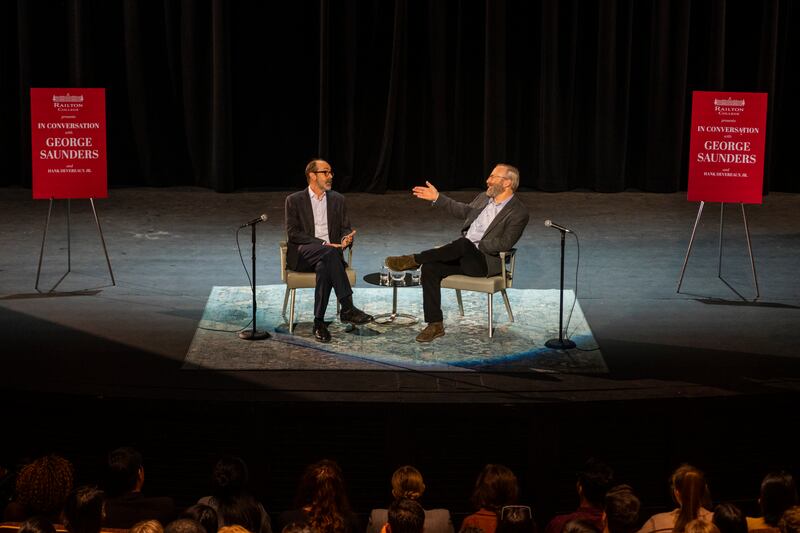
Instead, Hank demonizes the very nice, very gracious, very supportive Saunders, rendering him as someone to blame for his own lack of success. Watching Hank shut down his writers’ workshop early, because all the students are so enamored of Saunders, is the kind of searingly funny moment that any jealous writer (me) will laugh and wince at. Hank’s simmering resentment toward Saunders as his annoying fellow professors tell him how much they love this story and that story is visceral, especially for those whose own latent resentment can become unmanageable (me). And Hank’s acquiescence to his reality and low place in the literary world is a mature-if-sad moment. Some of us don’t get to be on George Saunders’ level, he admits. But maybe we’re not meant to. (Sigh: Me.)
“George Saunders” is some peak pandering toward a certain demographic: the one that always brings up what they’re reading right now, or which scans the New York Times Book Review with eager regularity. (I’m reading Cult Classic by Sloane Crosley right now, since you’re asking. It’s, like, fine.) But if Lucky Hank fully becomes a niche, mannered, self-referential series from now on, I’m on board. I’m crossing my fingers that there’s an episode where Hank accidentally gets Jonathan Franzen canceled or attends one of Zadie Smith’s literary salons.
Keep obsessing! Sign up for the Daily Beast’s Obsessed newsletter and follow us on Facebook, Twitter, Instagram and TikTok.

